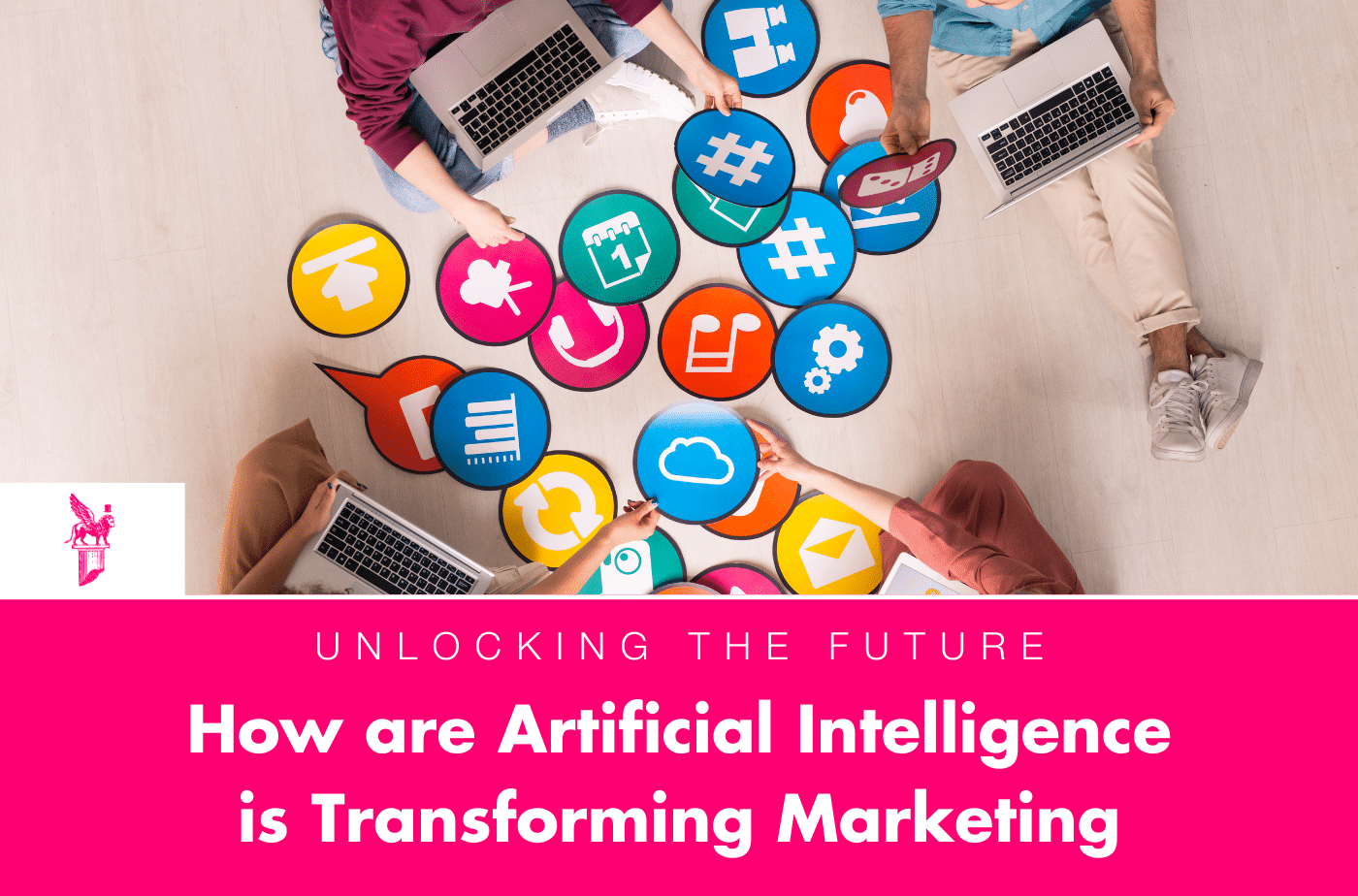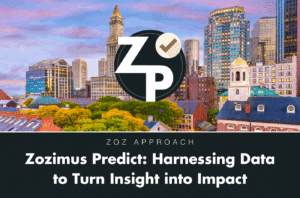In the ever-evolving landscape of marketing, one thing is certain: Artificial Intelligence (AI) is changing the game. As we look ahead to the future, it becomes increasingly clear that AI will play a pivotal role in reshaping the industry. In this article, we will delve deeper into the multifaceted impact of AI on marketing and explore how it is poised to revolutionize the way businesses connect with their audiences. Let’s get started.
Understanding Consumer Behavior with AI Insights
At the heart of effective marketing lies a profound understanding of consumer behavior. AI-powered analytics are proving to be the key to unlocking this understanding like never before. With AI, marketers can tap into vast amounts of data to gain insights into consumer preferences, habits, and trends.
These insights are invaluable for crafting highly targeted and personalized marketing campaigns. For example, AI can help identify when and where your audience is most active online, what products or content they are likely to engage with, and even their sentiment towards your brand.
Moreover, AI-driven tools can analyze historical data to predict future trends and consumer behaviors. This predictive capability allows marketers to stay one step ahead, adjusting their strategies to align with emerging trends.
Personalization at Scale
One of the most significant contributions of AI to marketing is the ability to personalize content and interactions at scale. Traditional marketing approaches often struggle to cater to the diverse needs and preferences of a broad audience. AI, however, can segment audiences into highly specific groups based on various criteria, such as demographics, behavior, and interests.
By segmenting the audience effectively, AI enables marketers to tailor content, recommendations, and offers to each group. This personalization not only enhances the customer experience but also drives engagement and conversions. According to a report by Epsilon, 80% of consumers are more likely to make a purchase when brands offer personalized experiences.
Personalization extends beyond just email greetings with the recipient’s name. It involves delivering the right message, at the right time, through the right channel. AI-driven marketing automation platforms can analyze customer data in real-time and trigger personalized interactions, such as sending product recommendations or follow-up emails after a specific action is taken.
Chatbots: Enhancing User Engagement and Support
Chatbots have become a common sight on websites and messaging platforms, and AI powers many of them. These AI-driven chatbots offer numerous benefits to both businesses and customers.
For businesses, chatbots provide an efficient and cost-effective means of delivering instant customer support. They can handle routine queries, troubleshoot problems, and even process orders. This not only improves customer satisfaction but also frees up human agents to focus on more complex issues.
From a customer’s perspective, chatbots offer convenience and 24/7 availability. Users can get quick answers to their questions without waiting for a human agent. Moreover, chatbots are becoming increasingly sophisticated, capable of engaging in natural language conversations and offering personalized responses.
Automating Repetitive Tasks
AI excels at automating repetitive and time-consuming tasks, freeing up marketers to focus on strategic thinking and creativity. Some of these tasks include:
- Email Marketing: AI can automate email campaigns, segmenting the audience, and sending personalized emails based on user behavior and preferences. This not only saves time but also improves email open rates and conversions.
- Social Media Management: AI tools can schedule and post content on social media platforms at optimal times, analyze engagement metrics, and even suggest content ideas based on trending topics and user interests.
- Content Generation: AI-powered tools can generate written content, such as product descriptions, blog posts, and social media updates. While they may not replace human writers entirely, they can be a valuable resource for producing large volumes of content quickly.
- Data Analysis: AI-driven analytics platforms can sift through vast datasets to identify patterns, anomalies, and trends. This helps marketers make data-driven decisions and optimize their strategies.
Predictive Analytics: Real-time Optimization
Predictive analytics is a game-changer in marketing. AI-driven models can analyze historical data and current performance metrics to predict future outcomes accurately. This is particularly valuable for optimizing advertising campaigns and marketing strategies.
For example, consider a paid advertising campaign on social media. Through predictive analytics, AI can analyze past performance, audience behavior, and external factors such as seasonality to predict which ads are likely to perform best in the future. Marketers can then allocate their budget to the most promising ads, maximizing ROI.
Predictive analytics is not limited to advertising. It can also be applied to inventory management, demand forecasting, and sales projections, helping businesses make informed decisions across various aspects of their operations.
The Rise of Voice Search
With the proliferation of voice-activated devices and virtual assistants like Siri, Alexa, and Google Assistant, voice search is on the rise. AI plays a critical role in voice search optimization.
When users speak queries instead of typing them, search engines rely on AI algorithms to understand natural language and deliver relevant results. Marketers need to adapt their SEO strategies to account for voice search, focusing on long-tail keywords and conversational content.
Additionally, businesses can leverage voice search to provide voice-activated customer support or create voice-activated applications that enhance user experiences.
Enhanced Data Security and Privacy
As AI-driven marketing relies heavily on data collection and analysis, ensuring data security and privacy has become paramount. AI is also playing a significant role in bolstering cybersecurity measures.
AI algorithms can detect and respond to security threats in real-time, safeguarding sensitive customer data. Furthermore, AI-driven compliance tools can help businesses adhere to data protection regulations and avoid costly fines.
To maintain consumer trust, it’s essential for marketers to be transparent about their data collection and usage practices. By providing clear privacy policies and giving users control over their data, businesses can build trust and foster long-term customer relationships.
The Future of AI and Marketing: Embracing Change
In conclusion, the future of AI and marketing is intertwined. AI is not just a trend; it’s a fundamental shift in how businesses understand, engage, and serve their customers. To thrive in this evolving landscape, marketers must embrace AI technologies and continuously adapt their strategies.
While AI brings unprecedented opportunities, it also raises ethical questions and challenges. Marketers must strike a balance between personalization and privacy, ensuring that the benefits of AI-driven marketing are enjoyed responsibly and ethically.
The road ahead is filled with exciting possibilities. AI will continue to evolve, introducing new tools and capabilities that we can only imagine today. As businesses harness the power of AI to connect with their audiences in more meaningful ways, one thing is clear: the future of marketing is smarter, more personalized, and more innovative than ever before. By staying ahead of the curve and embracing the AI revolution, marketers can write their success stories in the chapters of this new marketing era.
Surprise – this post was written by ChatGPT. Our experts at Zozimus are fine tuned to the evolution of AI tools and how we can best use them to gain client success. Contact us today to learn how we can make your brand’s dreams come true.
BOSTON, MARS



